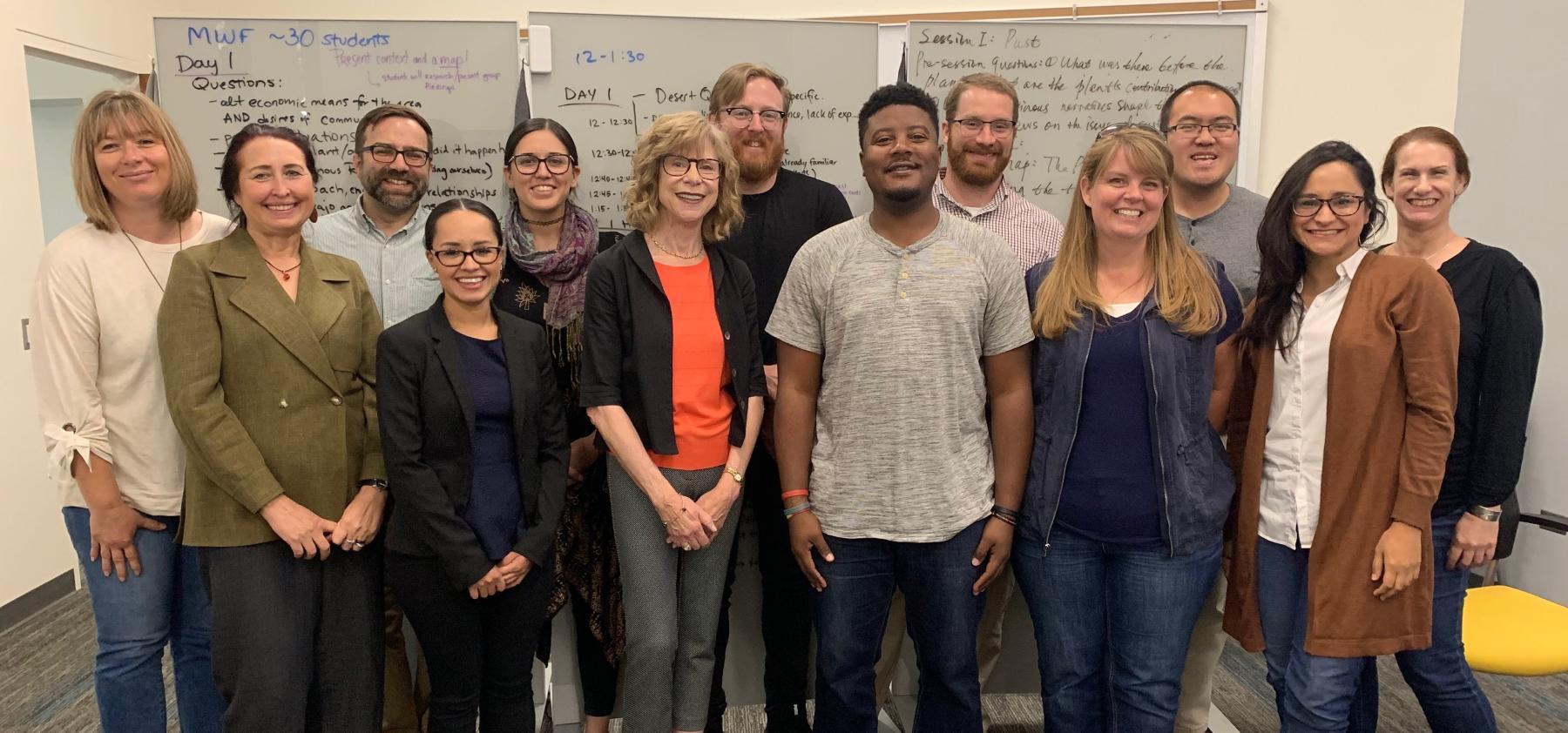
Connected Academics at ASU
As the 2018-19 academic year came to a close and most students and faculty began their summer hiatus, Connected Academics at ASU geared up for two, separate, three-day events to further prepare doctoral students of language and literature for a variety of careers.
Nearing the end of the Andrew W. Mellon Foundation grant with the Modern Language Association, ASU’s Connected Academics has much to be proud of. It’s created rewarding doctoral internship opportunities, supported students’ professional development, sponsored five Fellows and hosted numerous thought-provoking activities with sustainable outcomes, such as the May 2019 Digital Humanities and Pedagogy Summer Institute co-sponsored by the Graduate College and the Institute for Humanities Research (IHR) and the Humanities for Social Transformation Workshop and Internship co-sponsored with the Humanities Lab.
During the DH and Pedagogy Institute, invited ASU and Maricopa Community College District faculty were joined by ten competitively selected doctoral students from the arts and humanities to discuss the future of graduate student professional needs and digital humanities education in the undergraduate and graduate classrooms. Guest speakers were Whitney Sperrazza, Postdoctoral Research Fellow at Hall Center to the Humanities, and Danica Savonick, Assistant Professor of English at SUNY Cortland. Building from the faculty’s questions on day one about co-creating communities of practice, and the public talks during day two, the doctoral students, visiting speakers and Connected Academics team set an agenda for an “unconference” based on THATCamp ‘ground rules’ on the third-and-final day of the Institute. Led by Elizabeth Grumbach, IHR Assistant Director and DH Program Lead, participants discussed guidelines for successful collaboration, jobs and careers, how research comes into the classroom, and how digital humanities methodologies shape their own research and pedagogy. Not long after the Institute, while still trying to process all the rich ideas and resources, student-participant Tyler Feezell was already “[c]hanging and finalizing a course syllabus.”
The Humanities for Social Transformation (HST) Workshop also gave participants a new way to approach their own research and teaching. Carli Anderson, a doctoral candidate from Religious Studies, explained that she wants “to look more into opportunities for public engagement and assisting in public dialogues,” while Dontá McGilvery from the Theatre for Youth program feels that the module he created helped him to “have the confidence to try new things and think more creatively” about his research. Designed to increase students’ readiness for academic and non-academic career paths, the HST workshop asked participants to explore the relationship of the humanities to grand social challenges.
ASU University and Regents’ Professor and Director of the Humanities Lab Sally Kitch kicked off the Workshop with an introduction entitled, “Viewing the Humanities from 30,000 Feet,” where she asked the audience to consider the humanities as an intellectual collective, not just a discipline. Following Kitch, Keynote speaker Teresa Mangum, Director of the Obermann Center for Advanced Studies and Humanities for the Public Good Project at the University of Iowa, discussed "Becoming Humanities Scholars for the 21st Century.” As director of the PhD for the Public Good program, funded through a generous Mellon grant, Mangum looks to the practices of the humanities to implement a cultural shift toward collaboration and socially engaged scholarship.
After spending time interrogating humanities methodologies and disciplinary structures, participants developed “exploratory learning modules for a School of Sustainability class on energy transition” before presenting their modules to an esteemed panel of judges. Extending their experience, those competitively selected as interns developed additional modules based on their individual research interests. For example, Celina Osuna and Arina Melkozernovan worked together to develop a module that explored ecologies of the Southwest desert through a reinterpretation of the popular Mexican game of chance, Lotería. This workshop “was a great way to work across disciplines and combine methods and goals in order to effect change,” remarked Osuna.
More stories from the Graduate Insider

Graduate funding deadlines for Fall

Witches worldwide, literature and mental health: A conversation with Ana Silvia Cervantes Figueroa

How to feel confident in your next interview
Let’s be honest, interviews can feel nerve-wracking. Your palms sweat, your heart races, and you start to second-guess whether you even remember your own name. But here’s the good news: with a little preparation, you can walk into (or log onto) your next interview feeling calm, collected, and ready to shine.